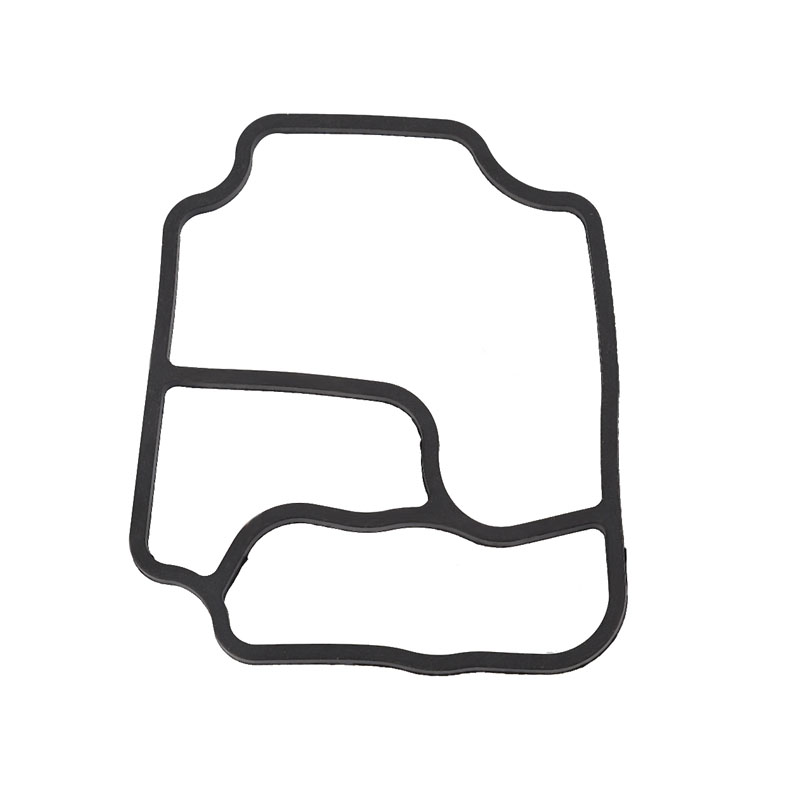upper oil pan gasket
Understanding the Upper Oil Pan Gasket Importance, Issues, and Maintenance
The upper oil pan gasket plays a crucial role in the overall functionality of an engine. Located between the upper oil pan and the engine block, this gasket serves as a barrier to prevent oil leaks, ensuring that the engine operates effectively. In this article, we will explore the importance of the upper oil pan gasket, common issues associated with it, and maintenance tips to prolong its lifespan.
Importance of the Upper Oil Pan Gasket
The upper oil pan gasket is essential for maintaining proper oil circulation within the engine. Oil lubricates the moving parts of the engine, reducing friction and preventing overheating. A well-functioning gasket creates a tight seal that keeps the oil contained within the upper oil pan, allowing it to perform its vital functions without leakage. When the gasket is in good condition, it helps maintain the engine’s oil pressure, which is critical for optimal performance.
Additionally, the upper oil pan gasket plays a significant role in preventing contaminants from entering the engine’s lubrication system. Dirt, dust, and other foreign particles can cause serious damage if allowed to mix with engine oil. The gasket’s integrity is therefore critical to maintain a clean and effective lubrication environment.
Common Issues with the Upper Oil Pan Gasket
Despite its significance, the upper oil pan gasket can develop problems over time due to wear and tear, exposure to high temperatures, and pressure fluctuations within the engine
. Here are some common issues that can arise1. Oil Leaks One of the most apparent signs of a failing upper oil pan gasket is oil leakage. This can lead to puddles of oil under the vehicle and decreased oil levels in the engine, which can result in serious damage if not addressed promptly.
2. Oil Sludge Build-Up A compromised gasket may allow oil to mix with contaminants, leading to sludge formation inside the engine. This sludge can clog oil passages, reducing lubrication efficiency and causing overheating.
3. Increased Engine Noise When oil leaks from the upper oil pan, the engine might start to produce unusual noises due to increased friction among moving parts. This noise may indicate that the lubrication is insufficient and requires immediate attention.
upper oil pan gasket

4. Oil Pressure Issues A failing gasket can lead to a drop in oil pressure, making it challenging for the engine to maintain optimal performance. This may trigger warning lights on the dashboard and should not be ignored.
Maintenance Tips for the Upper Oil Pan Gasket
Preventing issues with the upper oil pan gasket begins with regular maintenance. Here are some tips to ensure its longevity
1. Regular Oil Changes Changing the oil at regular intervals helps keep the engine clean and ensures that the oil pan is free from sludge and contaminants that could compromise the gasket.
2. Inspection During Servicing Whenever your vehicle is serviced, ask the technician to inspect the upper oil pan gasket for signs of wear or damage. Early detection of issues can save you from costly repairs later.
3. Monitor Oil Levels Keep an eye on your engine oil levels and quality. If you notice a drop in oil levels or excessive oil consumption, it could indicate a problem with the gasket that needs to be assessed.
4. Avoid Overheating Ensure your engine's cooling system is functioning properly. Overheating can accelerate gasket degradation, so maintain proper coolant levels and check for leaks in the cooling system.
5. Use Quality Parts When replacing the upper oil pan gasket, choose high-quality parts from reputable manufacturers. Quality gaskets are often more durable and resistant to wear and tear.
Conclusion
In conclusion, the upper oil pan gasket is integral to engine health and performance. Understanding its function and being aware of common problems can help vehicle owners maintain their engines more effectively. Regular maintenance, including oil changes and inspections, is key to ensuring the gasket remains in good condition, ultimately prolonging the life of the engine itself. By taking these precautionary measures, you can prevent costly repairs and ensure your vehicle runs smoothly for years to come.
-
The Ultimate Guide to Car Repair Kits: Tools and Essentials Every Driver Should Own
News Aug.01,2025
-
The Complete Guide to Oil Pan Gaskets: Sealing Engine Leaks the Right Way
News Aug.01,2025
-
Preventing Oil Leaks: A Complete Guide to Oil Pan Gaskets and Drain Seals
News Aug.01,2025
-
Everything You Need to Know About Oil Pan Gaskets and Drain Plug Seals
News Aug.01,2025
-
Essential for Car Owners: How to Use a Car Repair Kit to Deal with Minor Breakdown
News Aug.01,2025
-
Comprehensive Guide to Engine Oil Sump Gaskets and Related Seals
News Aug.01,2025
-
The Ultimate Guide to Boat Propeller Bearings and Trailer Wheel Bearings
News Jul.31,2025
Products categories















